Why glass baby bottles are better than plastic baby bottles
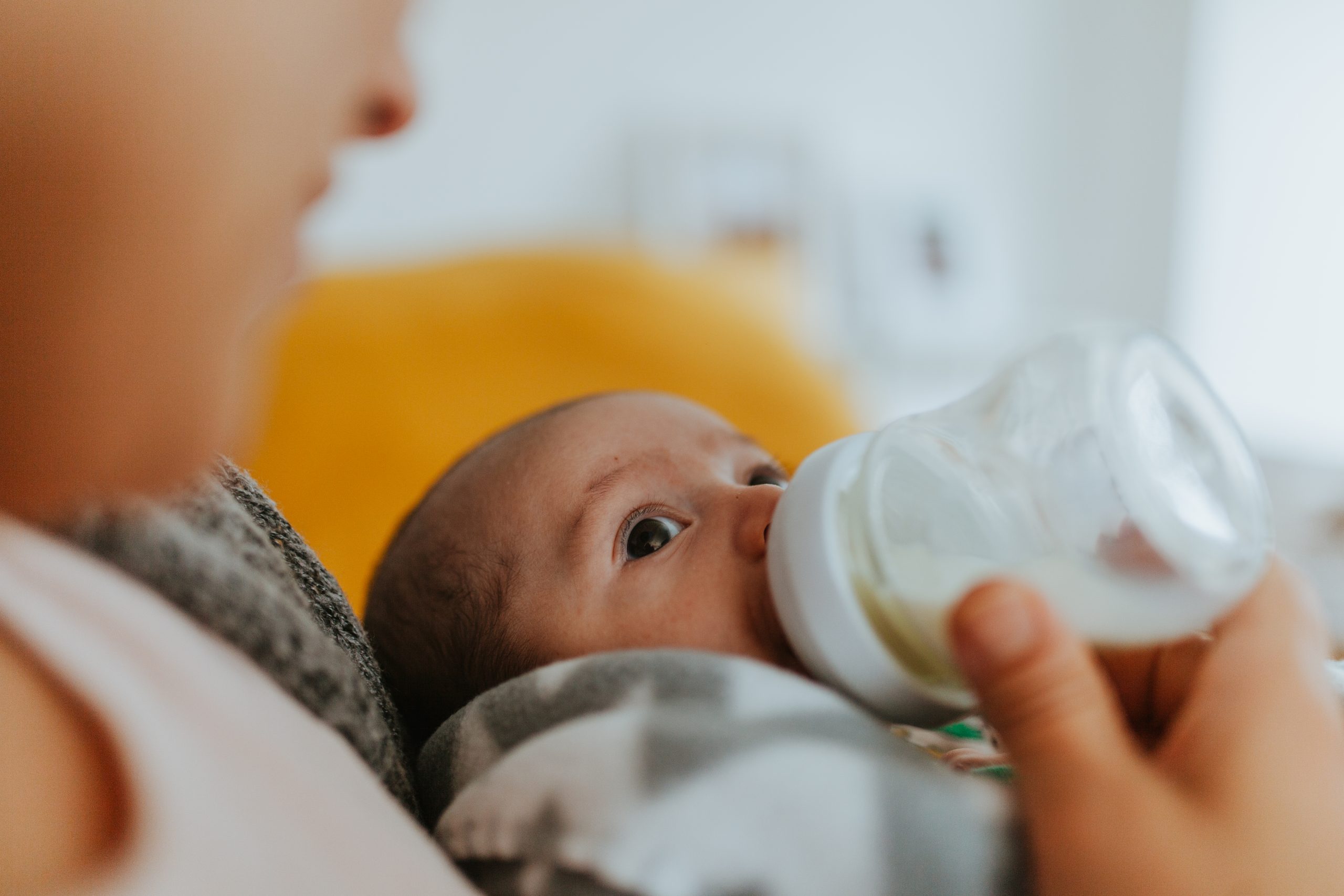

Microplastics are small pieces of plastic measuring less than five millimetres. While many people don't worry about them in day-to-day life, new research suggests that they may actually be more common than we think.
So now people are looking for alternatives and wondering whether glass baby bottles would be a better, safer alternative to plastic.
This week, a new study from Trinity College Dublin revealed some alarming results. The research found that high levels of microplastics are released from polypropylene baby bottles as formula is being prepared, meaning that babies are consuming microplastics as they eat. It is thought that bottles made from the plastic, which is used in many types of kitchenware, release up to 16 million microplastics per litre of liquid. However, the release is made significantly worse when hot liquid is used inside the bottle. When the temperature increases from 25 to 95C, as often happens when boiling water is poured into the bottle during formula preparation, the number of microplastics released increases from 0.6 million to 55 million particles per litre.
The findings were especially troubling as research conducted by the World Health Organisation (WHO) only last year suggested that adults would consume about 300 to 600 microplastics a day but the average values of this study were around the millions.
Taking on these findings, it could easily be applied away from baby formula and to adults' cooking as well. After all, many households store leftovers in plastic containers in the fridge and then use the microwave to heat them up the following day or alternatively, wash out their plastic containers with boiling water. So if microplastics have been in our systems for years, are they really so bad?
“When we saw these results in the lab we recognised immediately the potential impact they might have." Professor John Boland said, "The last thing we want is to unduly alarm parents, particularly when we don’t have sufficient information on the potential consequences of microplastics on infant health."
But he said, "I’ve already gotten rid of all those [plastic] containers I used to use and if I had young children I would modify how I prepare [milk formula],”
GoodtoKnow Newsletter
Parenting advice, hot topics, best buys and family finance tips delivered straight to your inbox.
Professor Liwen Xiao at TrinityHaus and Trinity’s School of Engineering has also emphasised the need for more research into microplastics, as there is little information available on how they impact our health. “Our study indicates that daily use of plastic products is an important source of microplastic release, meaning that the routes of exposure are much closer to us than previously thought. We need to urgently assess the potential risks of microplastics to human health. Understanding their fate and transport through the body following ingestion is an important focus of future research."
Following the results of the study, there were some recommendations made to help prevent microplastics getting into the formula. These were to prepare hot water using a non-plastic kettle or cooker and to prepare infant formula in a non-plastic container using at least 70C water. Cool the beaker down to room temperature and then transfer the prepared formula into a high-quality plastic feeding bottle, if you choose not to switch to a glass one.
Plastic containers of all kinds made of polypropylene have been given the warning and users have been told not to reheat prepared formula (or food) in plastic containers and to avoid microwave ovens. They've also been told not to shake the container vigorously at any time and not to use sonic cleaning system to wash out the bottle.
So while there hasn't been specific advice to switch from plastic to glass bottles, the advantages are adding up.

What are the benefits of glass bottles over plastic?
The main advantage of having a glass bottle over a plastic one is the absence of these microplastics, which are currently having an unknown effect on infants' health. Glass bottles don’t contain plastic materials so there’s no chance of these fragments breaking off and entering the milk formula.
But other benefits of glass baby bottles include:
- They’re easier to clean: Glass doesn’t damage as easily as plastic, so doesn’t have tiny scratches that hold onto bacteria and other nasty residues.
- You can heat them to a high temperature: Unlike plastic bottles which release microplastics when put under hot water, glass doesn’t so you can carry out full sanitisation with boiling water.
- Smells and tastes better: As glass is easier to clean, it won’t hold onto the same residues that plastic does and so won’t give off unpleasant smells or tastes that transfer into the formula.
- No need to buy a new breast pump: Despite what many people think, glass baby bottles are totally compatible with many modern breast pumps these days.
- More durable: Unless they break, glass bottles are significantly more durable than plastic as they maintain their shape under pressure and won’t change colour or scratch.
With this new research, it’s clear that the market for glass baby bottles will continue to skyrocket over the next few years. But many retailers already have a great stock of glass baby bottles as they've been recognised as a suitable alternative to plastic, especially for colic-y babies, for some years now. This is where you can buy some of the best ones...
Which glass baby bottles are best?
Tommee Tippee glass bottles
Widely seen as some of the best glass baby bottles on the market, Tommee Tippee sells theirs on their website and easily on Amazon. Fans of the bottles say that they feel a lot sturdier and safer than plastic ones and following other research based around plastic bottles, have decided to make the switch. These are two of our favourites...
Tommee Tippee Closer to Nature Glass Newborn Feeding Set
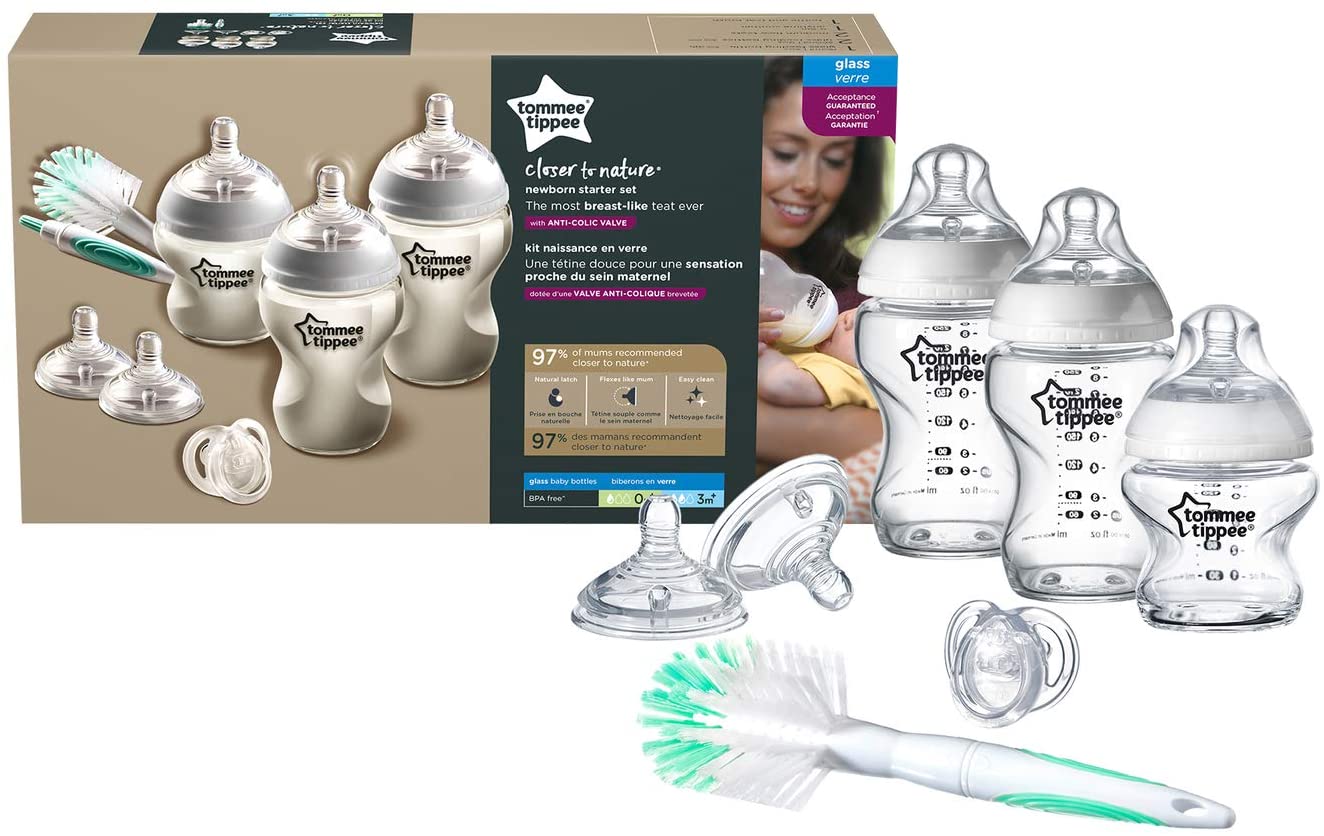
If you've got a newborn or are just getting started with using glass bottles then this is a great set to buy. The bottles have a distinctive breast-like teat so baby won't know the difference between Mum and bottle as they make the transition, while the anti-colic valve reduces excessive air flow for colic-y babies. It also comes with a dummy, a cleaning brush and two spare tops. The newborn feeding set is also £5 off in October!
Tommee Tippee Baby Bottle Glass 250ml
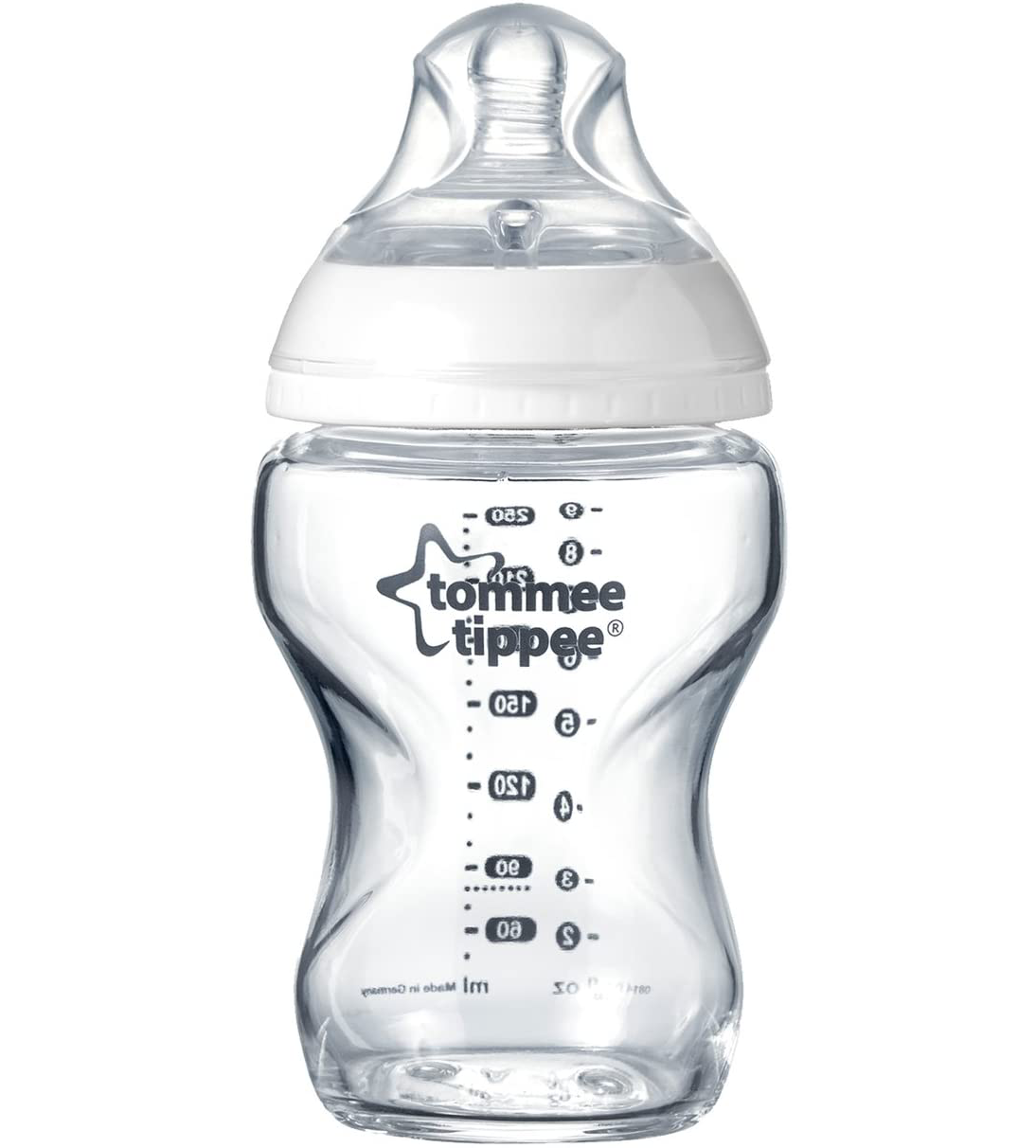
For those looking to exchange their plastic for glass, this one bottle pack should do the trick. It's compact and easy for adults to hold, while also being completely safe for the little one as like all other Tommee Tippee glass bottles, it's BPA free and doesn't have any phthalates or toxins. It also comes with the anti-colic value and breast-like teat. Parents with babies who have trouble sleeping have also said that this bottle is the only one that their babies will latch onto in the night.
NUK First Choice Glass Baby Bottle
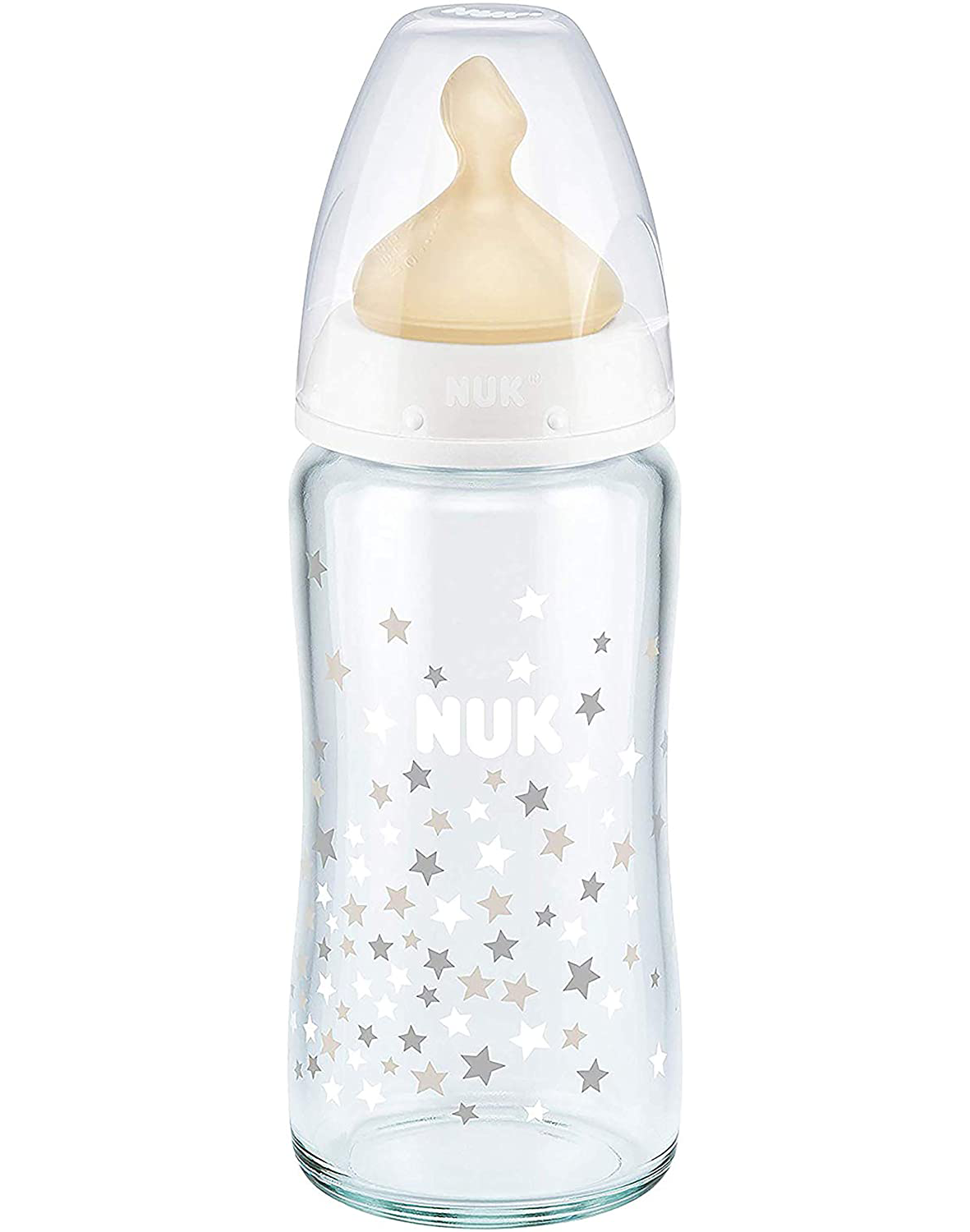
You can also pick up a starter-kit from NUK if you're new to glass bottles. Much like the Tommee Tippee, this one comes with an anti-colic air system and supports breast to bottle feeding with the extra wide lip. The bottle can also be recycled after you're done with it and the latex teats are biodegradable. Ideal for those aged 0 to 6 months old.
Lansinoh Glass Baby Bottle
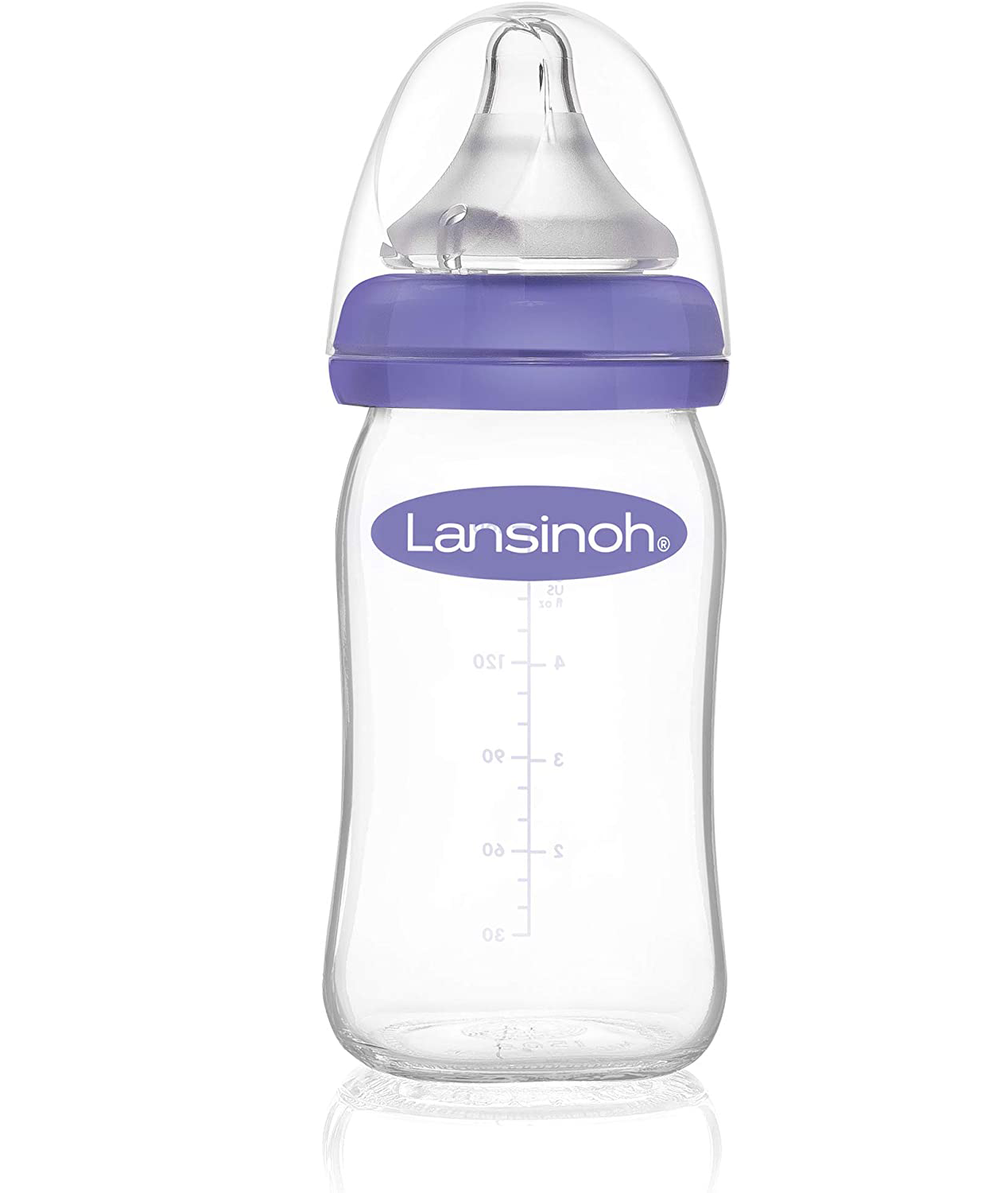
This bottle has been designed with travel in mind. When baby and mum are apart or together, the Lansinoh glass baby bottle has been designed to replicate a mother's teat and encourage the baby to feed. Especially now it's £2 off in October, it's one of the most affordable glass baby bottle options out there.
Lifefactory Glass Baby Bottle
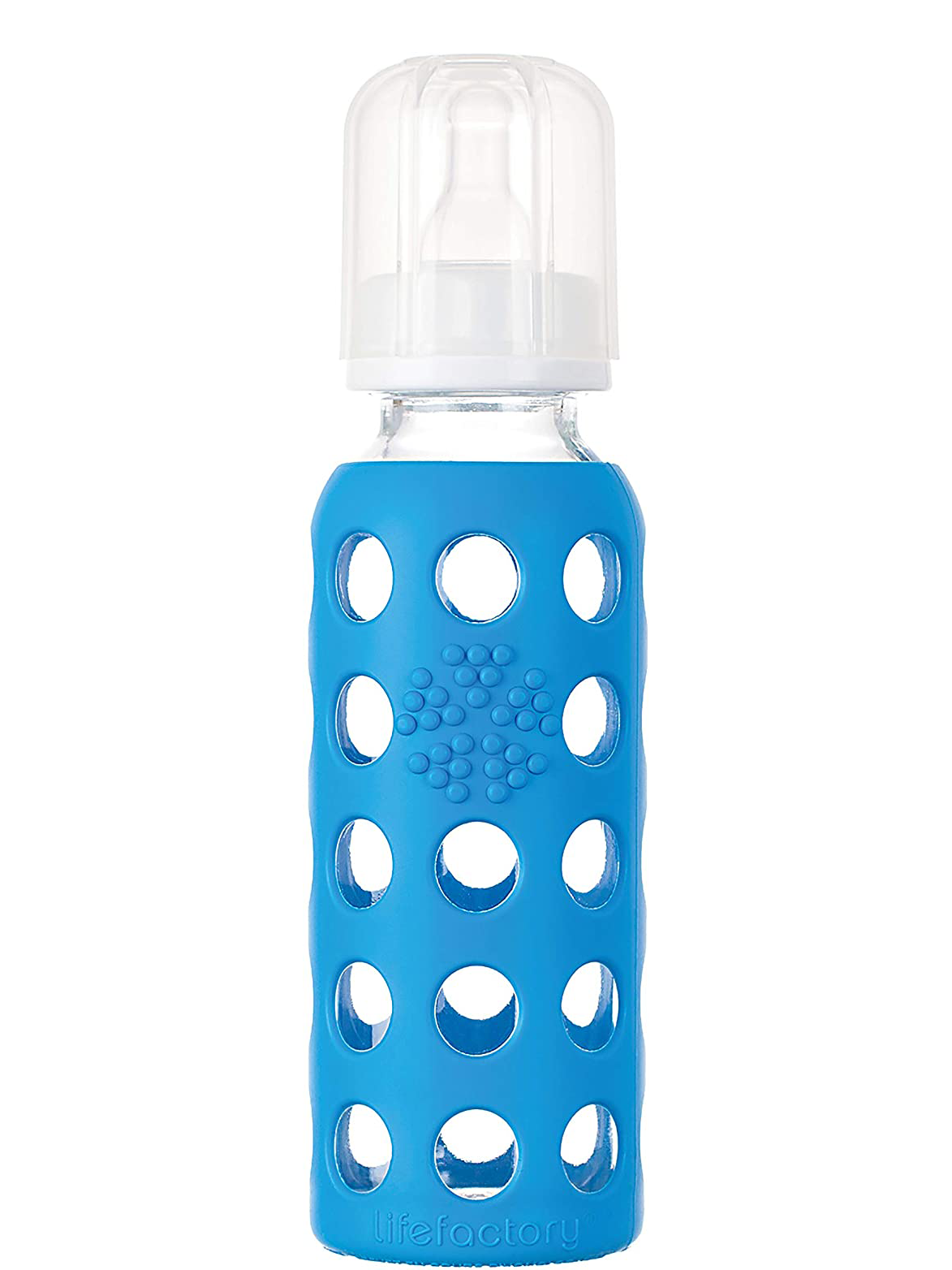
While the Lifefactory glass baby bottle might be more expensive than the others, we like it because it comes with a shatter-proof casing around it. Available in a wide range of colours, the silicone protection will ensure that however many bumps on the floor the bottle gets, it won't shatter.
So there's plenty of options to swap out plastic for glass with these top picks of the best glass baby bottles out there.

Grace Walsh is a health and wellbeing writer, working across the subjects of family, relationships, and LGBT topics, as well as sleep and mental health. A digital journalist with over six years experience as a writer and editor for UK publications, Grace is currently Health Editor for womanandhome.com and has also worked with Cosmopolitan, Red, The i Paper, GoodtoKnow, and more. After graduating from the University of Warwick, she started her career writing about the complexities of sex and relationships, before combining personal hobbies with professional and writing about fitness.
-
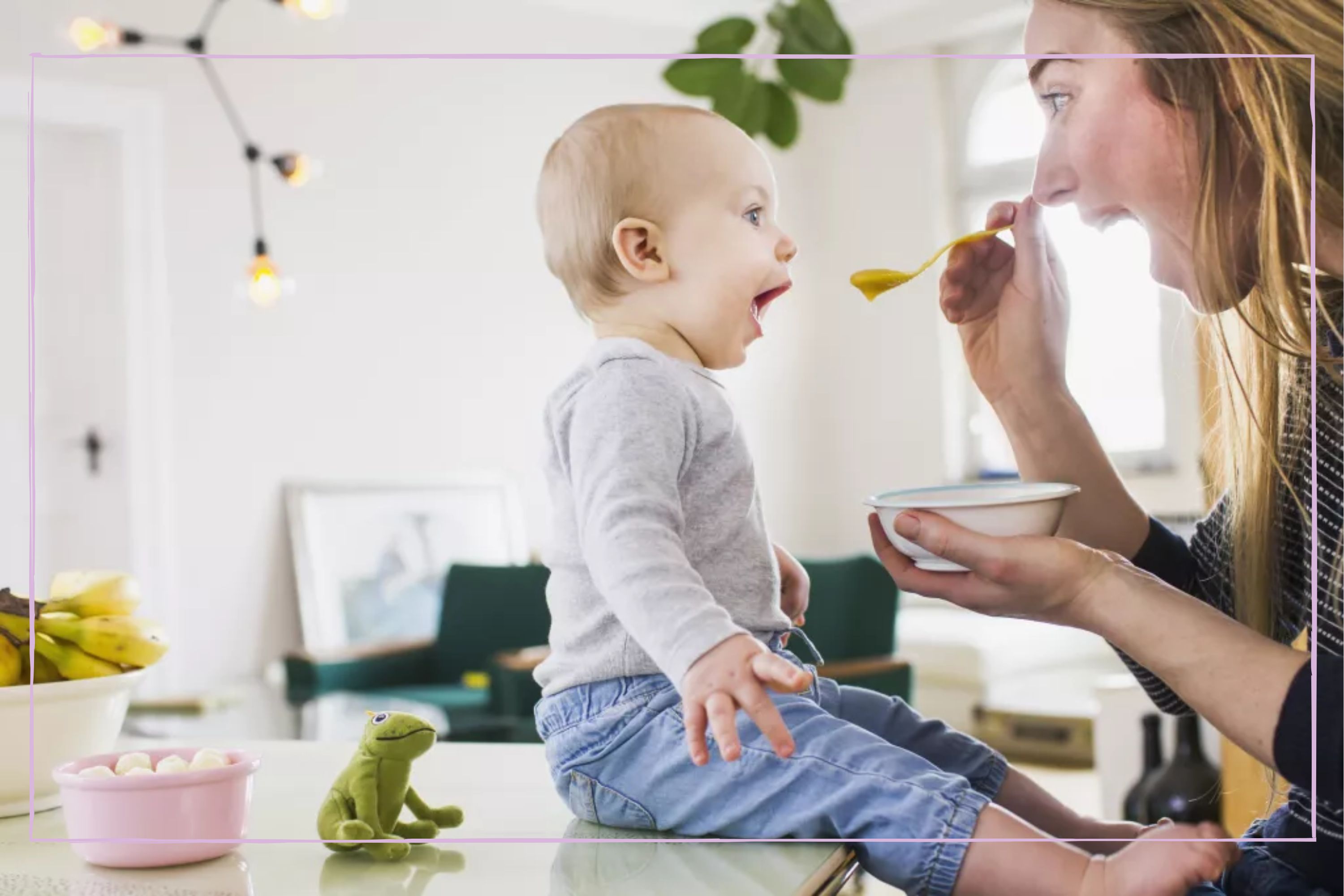 How to start weaning - according to the experts
How to start weaning - according to the expertsAn ultimate guide on how to get going
By Lisa Harris Last updated
-
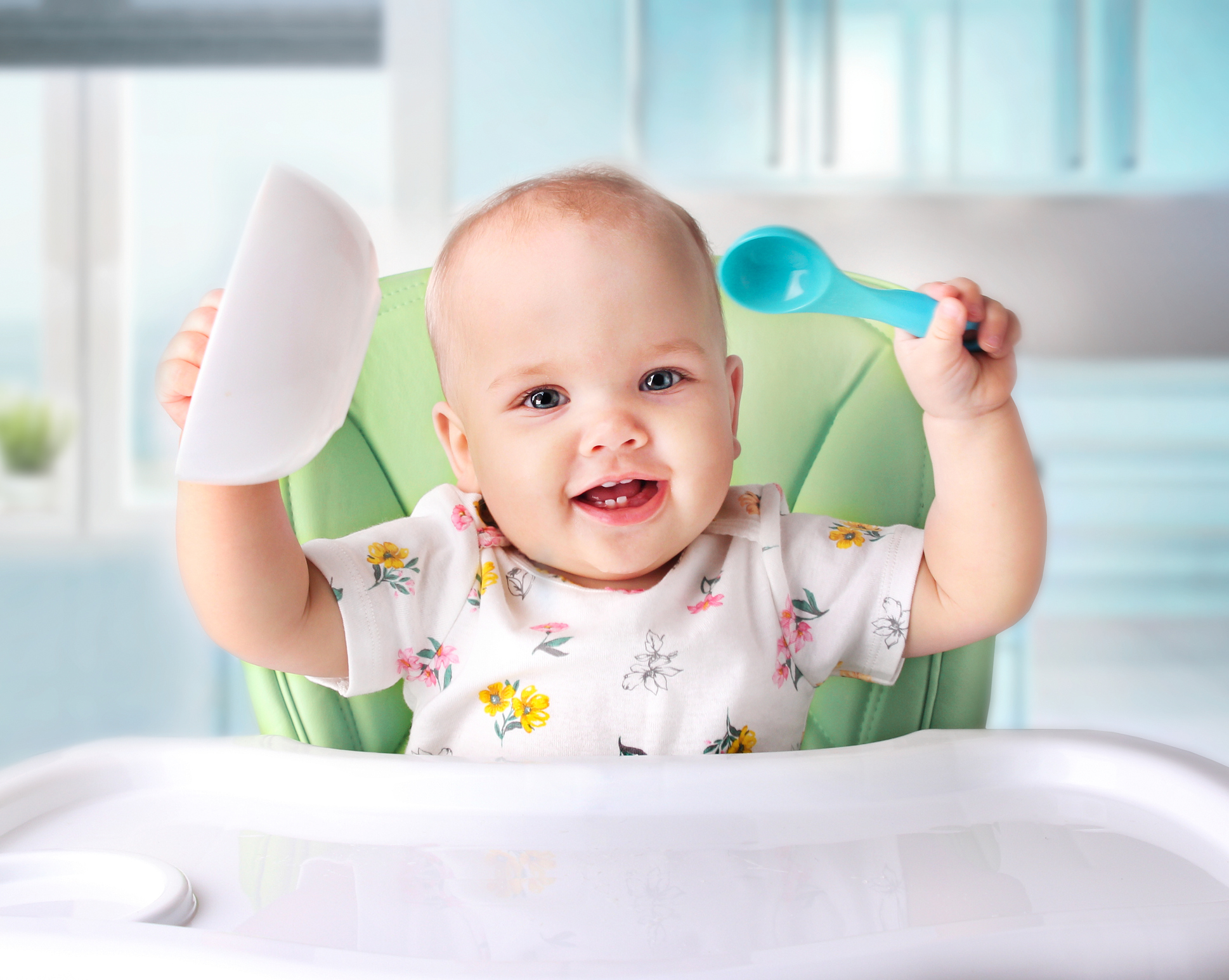 Expert reveals her top tips for keeping 'hangry' babies satisfied when weaning
Expert reveals her top tips for keeping 'hangry' babies satisfied when weaningHungry and unhappy often sit in the same sentence when it comes to our bundles of joy
By Miriam Habtesellasie Published
-
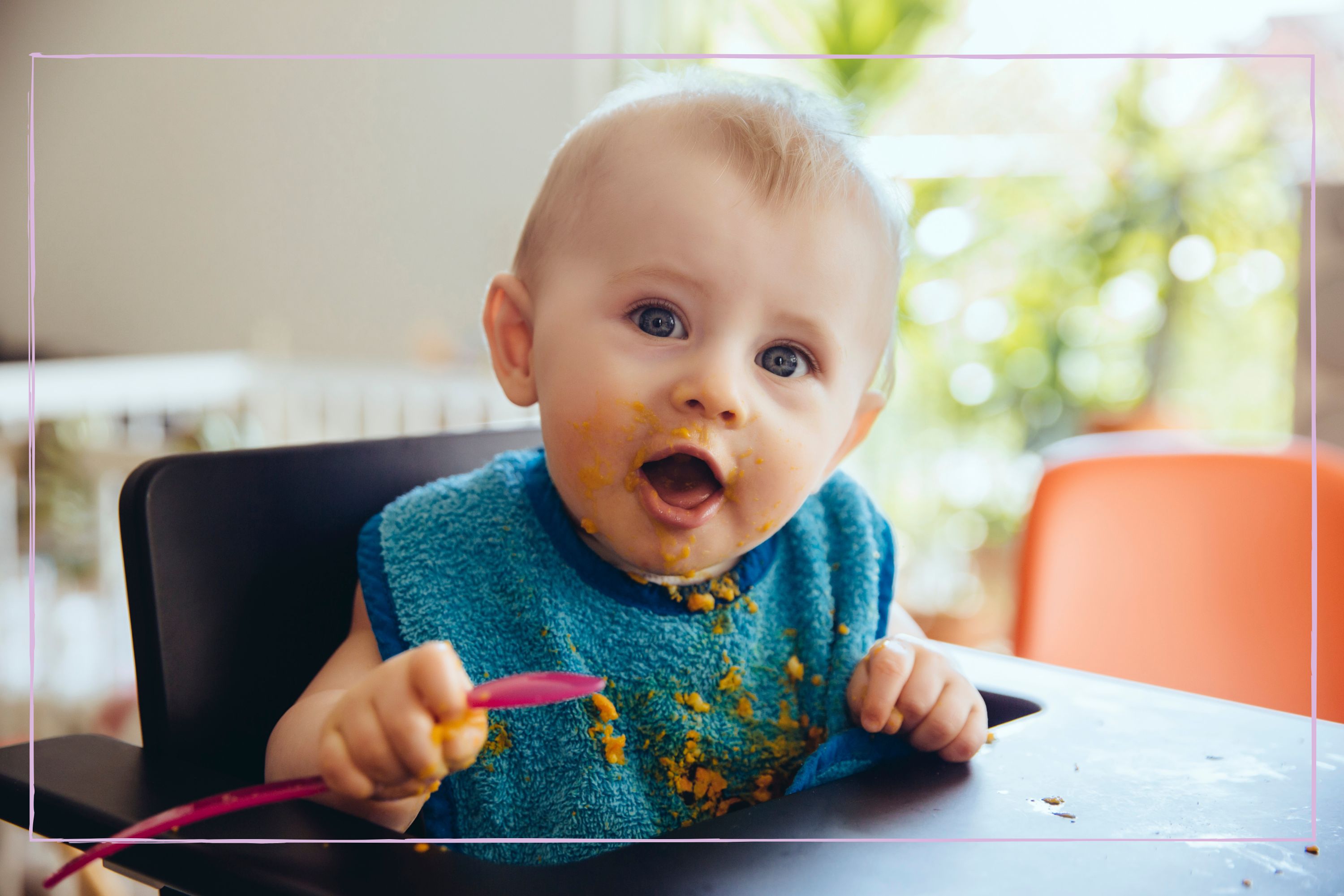 Baby food meal planner: Weaning at 7 - 9 months
Baby food meal planner: Weaning at 7 - 9 monthsThis baby food meal planner 7 - 9 months will help your baby used to a few lumps, bumps and new textures for stage 2 of weaning.
By Jennifer Shepherd Last updated
-
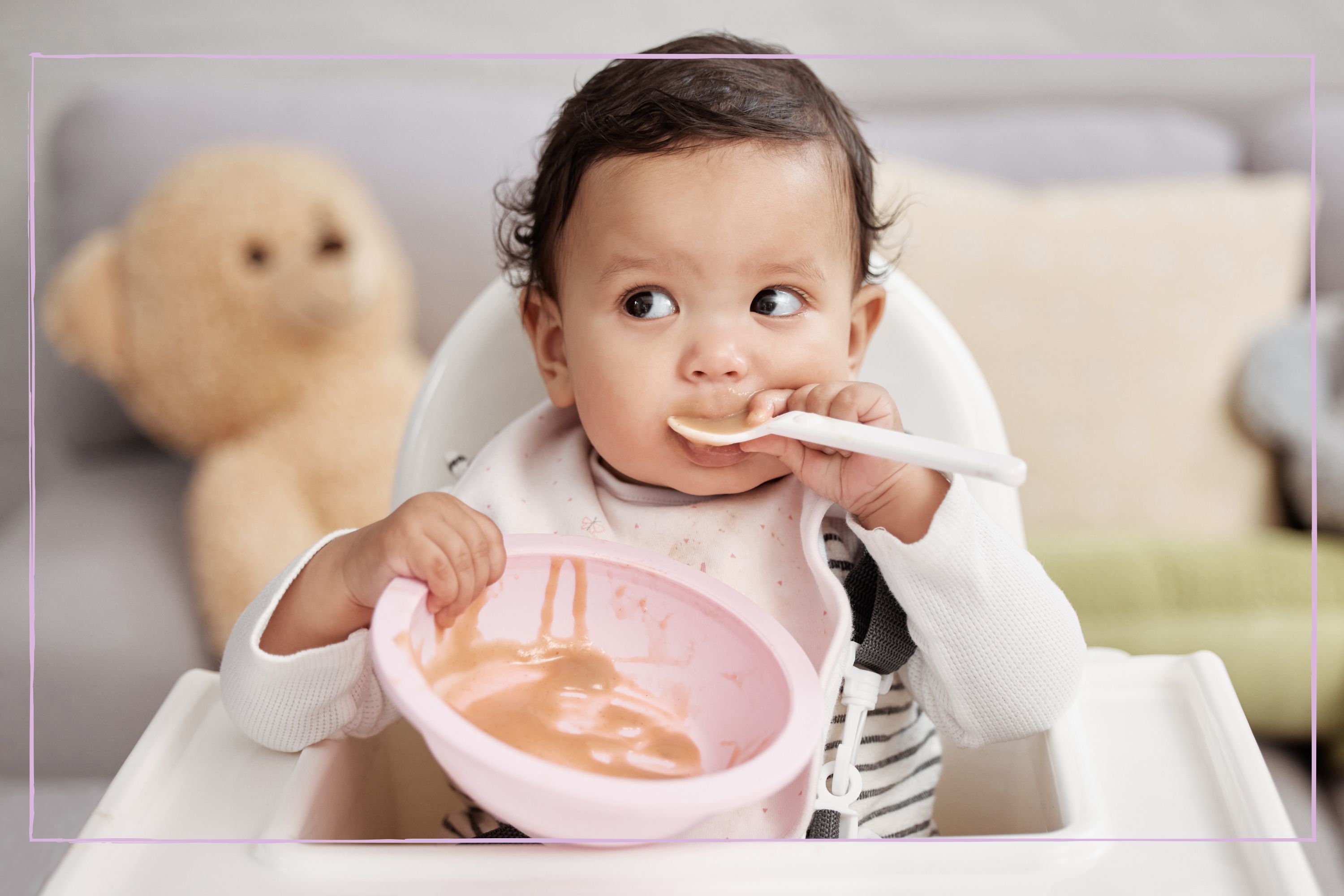 Baby food meal planner: Weaning at 6 - 7 months
Baby food meal planner: Weaning at 6 - 7 monthsStage 1 of baby weaning is a new experience for your baby. Once weaning picks up at around 6-and-a-half to 7 months, use this baby food meal planner to plan your baby's meals.
By Jennifer Shepherd Last updated
-
 Wean in 15: Joe Wicks reveals plans for a new toddler cookery book
Wean in 15: Joe Wicks reveals plans for a new toddler cookery bookBy Aleesha Badkar Published
-
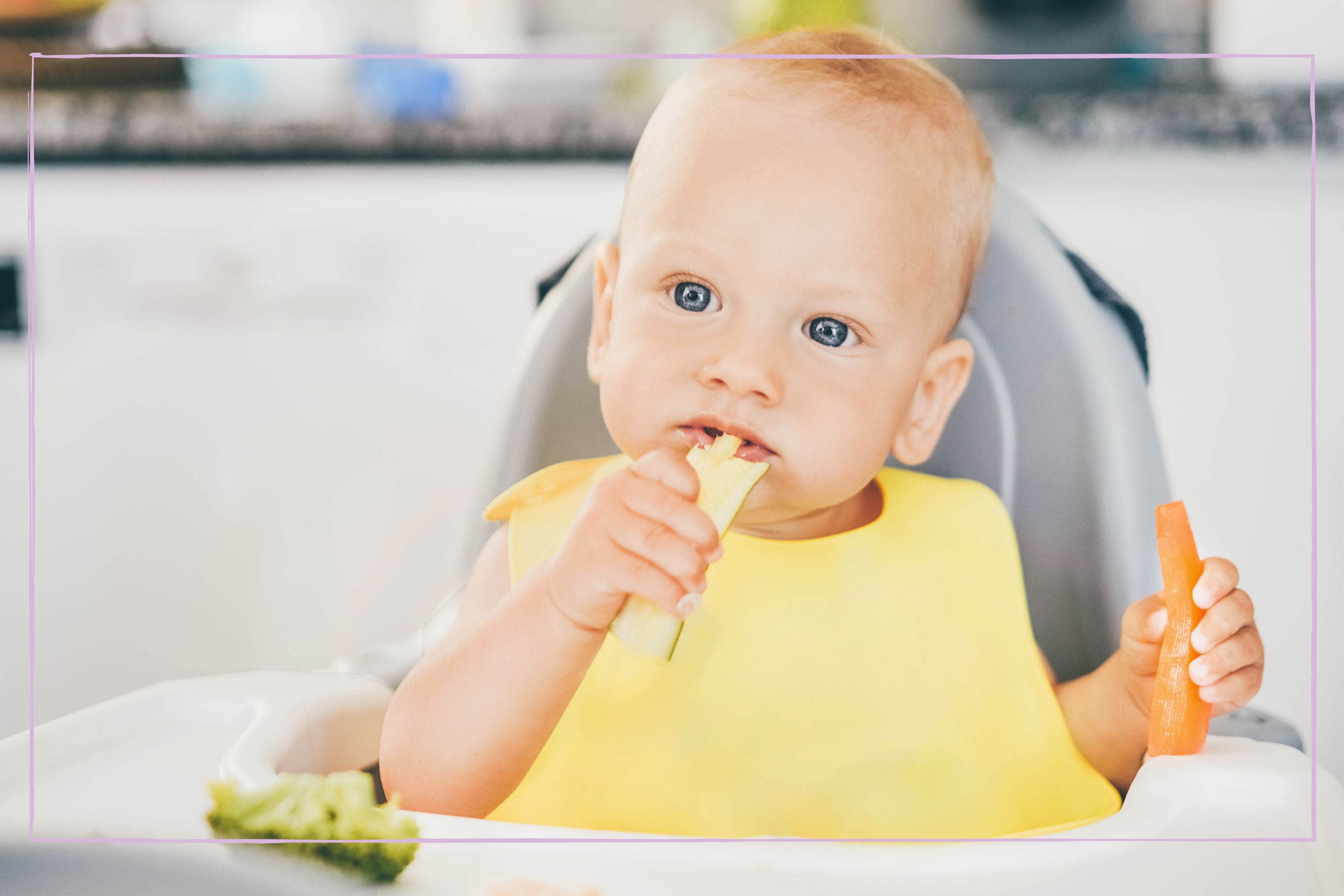 Baby-led weaning: How to get started and what to serve, by the nutrition experts
Baby-led weaning: How to get started and what to serve, by the nutrition expertsBaby-led weaning (BLW) is your child feeding themselves from the start. We speak to other mums and experts for all that you need to know....
By Stephanie Lowe Last updated
-
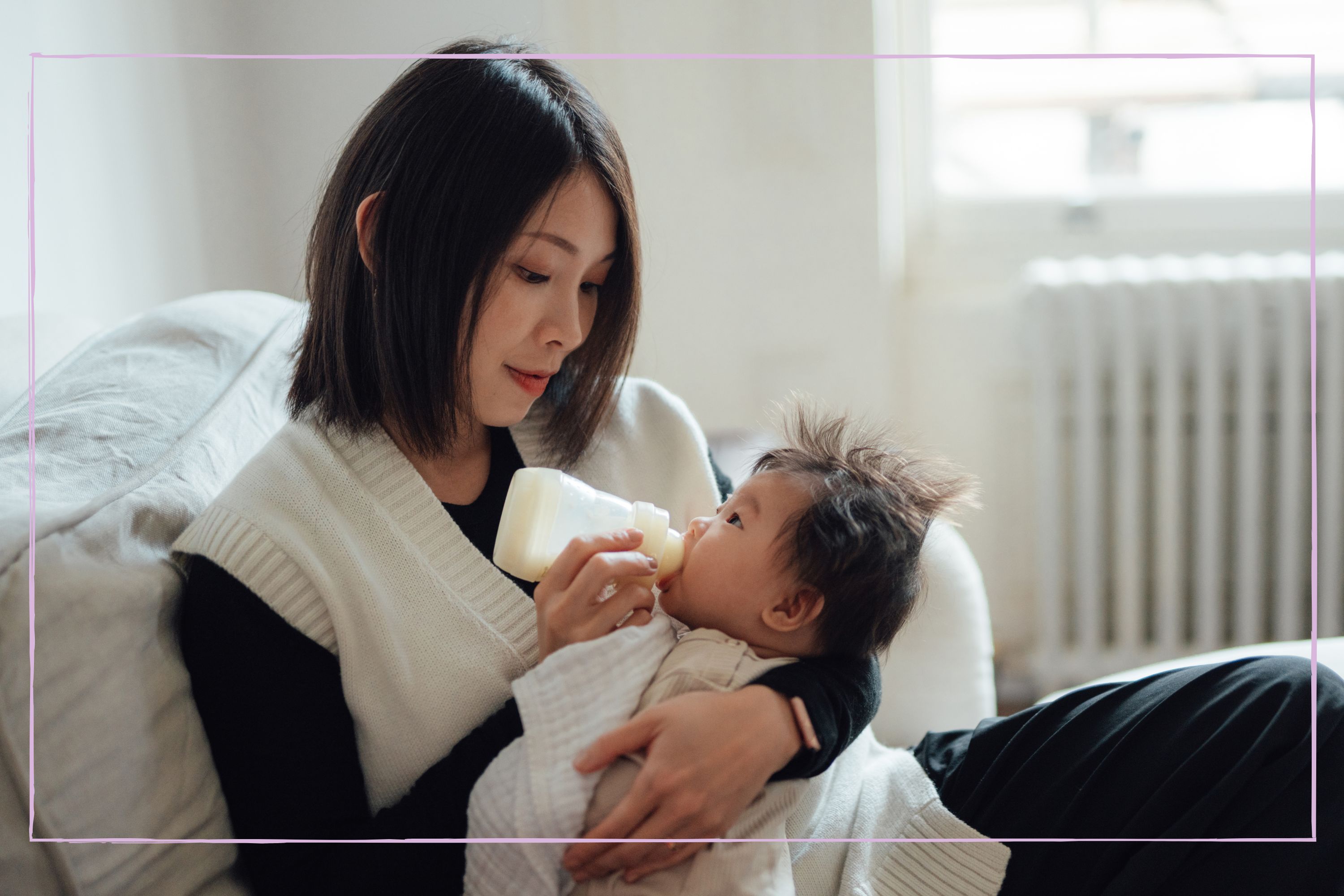 How to bottle feed a newborn: Top five tips and advice from experts
How to bottle feed a newborn: Top five tips and advice from expertsWe've asked the experts how to bottle feed a newborn - here's everything you need to know.
By Ellie Hutchings Last updated
-
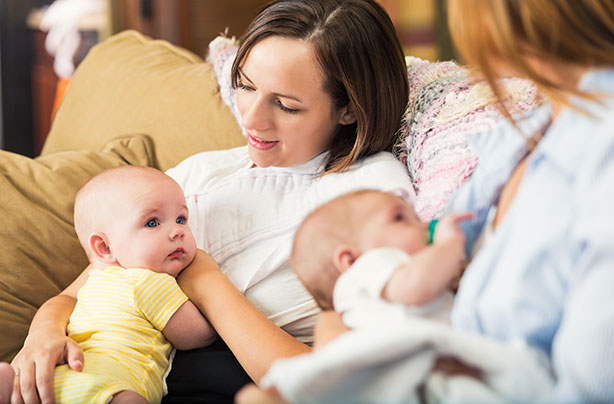 Breastfeeding or bottle feeding? Deciding what's best for you and your baby
Breastfeeding or bottle feeding? Deciding what's best for you and your babyDeciding whether to breast or bottle feed? These pros and cons could help you.
By GoodtoKnow Published